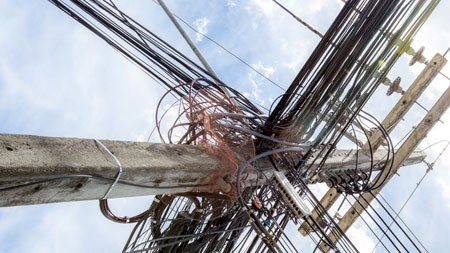With the economy in crisis, many South African property owners will have little choice but to hang on to their investments and hope the government’s proposed remedial actions start to gain traction.
In his medium term budget policy statement, presented in Parliament on Wednesday 30 October, Finance Minister Tito Mboweni gave the nation little hope of economic relief in the near future.
The facts:
- South Africa’s economic growth for 2019 is projected at 0.5% - down from 1.5% in March 2019 - and possibly inching up to a dismal 1.7% in 2022. In comparison, the average growth for other Sub-Saharan countries is around 3.6%. Kenya’s economy grew by 6%, Ghana by 7.5% and Ethiopia by more than 7%.
- Expected tax revenue for 2019/20 is R1.37 trillion - R53 billion less than expected.
- Consolidated government spending will total R6.3 trillion over the next three years, with R3 trillion allocated to education, social development and health.
- The consolidated budget deficit is projected at 5.9 % of GDP in the current year, and is expected to average 6.2 % of GDP over the next three years.
- This year national debt exceeded R3 trillion. It is expected to rise to R4.5 trillion in the next three years.
- As a proportion of South Africa’s GDP, gross debt rose from 56.7 % in 2018/19 to 60.8 % in the current year. Without any policy adjustments, debt will most likely exceed 70 % of GDP by 2022/23.
- The public sector wage bill accounts for 46% of tax revenue in 2019/20. A startling 29 000 public servants - including members of the national executive, members of Parliament, members of the provincial executive, and others - each earned more than R1 million last year. After adjusting for inflation, this is more than double the number of civil servants earning more than R1 million in 2006/07.
- Debt service costs, wages and financial support for state owned enterprises (SOEs) are increasing by 13.7% a year. This is double the figure for health, social development and economic development. “The problem is that South Africa spends more than it earns,” said Mboweni.
“This is a serious position to be in, and the consequence of not acting now would be gravely negative. Over time, the country would likely face mounting debt service costs and higher interest rates and may enter a debt trap. The unemployment crisis would worsen, and government debt could balloon. This is an outcome we are determined to avoid.” He said that savings of more than R150 billion would be required over the next three years and announcements on the measures to achieve this would be made in the 2020 Budget.
Cutting costs
Mboweni proposed the following cost cutting measures for senior public servants:
- The salaries of cabinet ministers, premiers and MECs will be frozen at current levels, with the likelihood of downward adjustments.
- The cost of official cars will be capped at R800 000 including VAT.
- A new cellphone dispensation will cap the amount claimable from the state.
- All domestic travel will be on economy class tickets.
- There will no longer be payment for subsistence and travel for domestic and international trips.
State-owned enterprises
Mboweni said that state-owned companies need to be weaned off the national budget, and stand on their own feet.
Eskom must:
- Run its existing plant and equipment better.
- Achieve other operational efficiencies, including improved fiscal management;
- Fast track the separation of the utility into three parts as endorsed by the political principals.
The Minister of Public Enterprises further elaborated on the proposed Eskom reforms in the paper released earlier in the week.
SAA is unlikely ever to generate sufficient cash flow to sustain operations in its current configuration, and operational and governance interventions are urgently required.
Other SOEs that require support from the fiscus will be subject to certain pre-conditions and principles. In future, new cash flow support for SOEs will be in the form of loans, rather than equity.
Infrastructure projects
Public sector infrastructure projects are plagued by poor planning and implementation. This comes out in underspending, which reached 20 % of capital budgets last year.
Mboweni said the Budget Facility for Infrastructure, a technical entity that reviews complex capital projects, has already strengthened state capacity. In addition, government has made progress on a blended finance Infrastructure Fund. The fund will be hosted by the Development Bank of Southern Africa and will be led by Dr Sean Phillips, an independent management consultant focusing on the public service.
“The implementation team for the fund has already identified policy and regulatory hurdles. A pipeline of possible projects amounting to more than R500 billion has been identified,” said Mboweni.
“Government has set aside R100 billion over the coming decade to co-finance programmes and projects, with R10 billion in the baseline. Pilot projects will receive over R500 million in the current year. We are working with the private sector to make this Fund a success.”
Other measures
- Cabinet has approved that over 14 000 ha of land be released for human settlements development.
- Resources have been shifted to areas that urgently need to strengthen capacity. For the next two years, the National Prosecuting Authority (NPA) will receive an additional R1.3 billion and SARS an additional R1 billion. These additional funds have been allocated to help combat corruption and improve revenue collection.
- The approach to money laundering will be reviewed by the Financial Action Task Force. Steps are also being taken to strengthen co-operation between the Financial Intelligence Centre, the South African Reserve Bank (SARB) and SARS.
- To promote investment and reduce unnecessary burdensome approvals, the SARB will propose a more modern, transparent and risk-based approvals framework for cross-border flows. Rules on active currency hedging, loops, and mortgages for individuals living and working in South Africa are to be reformed.






